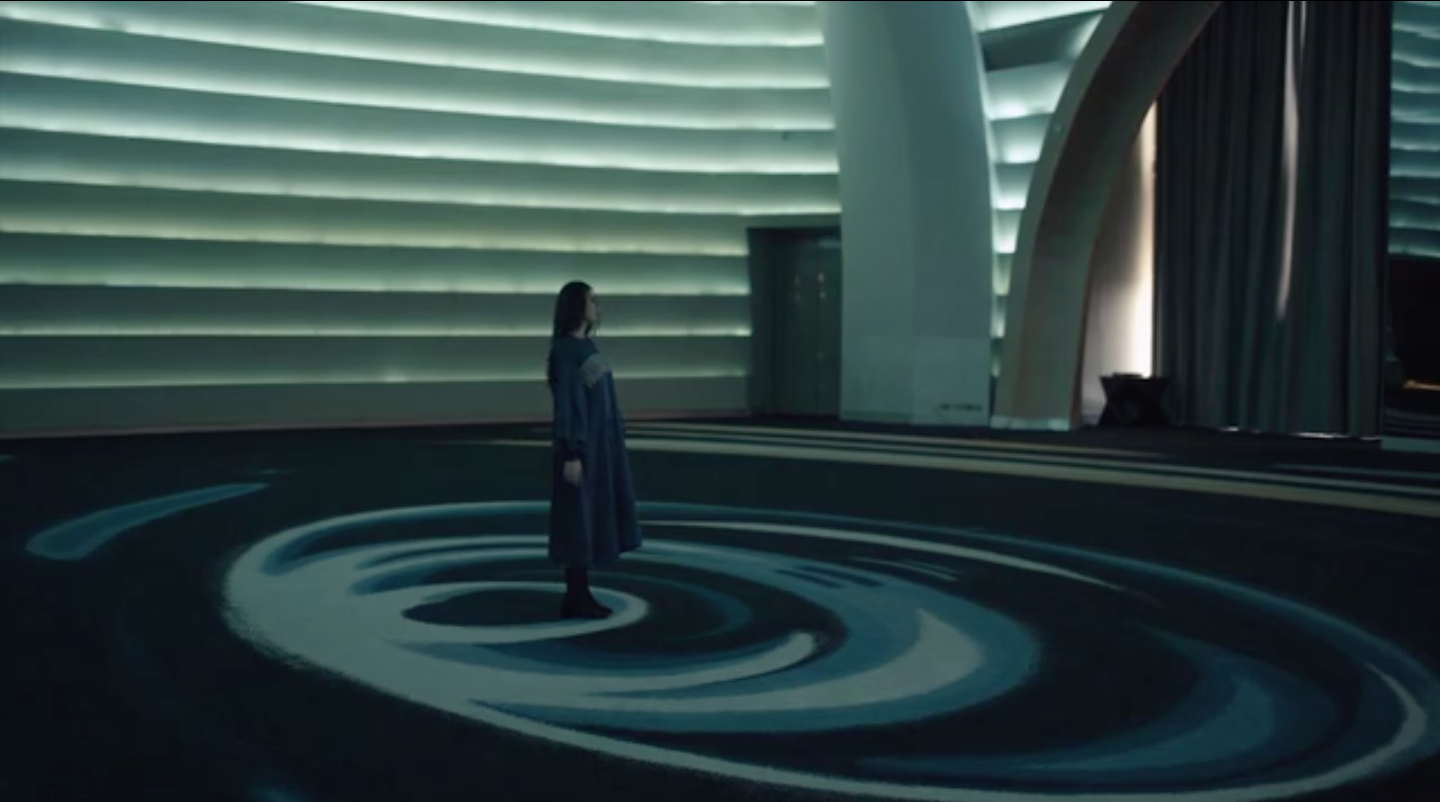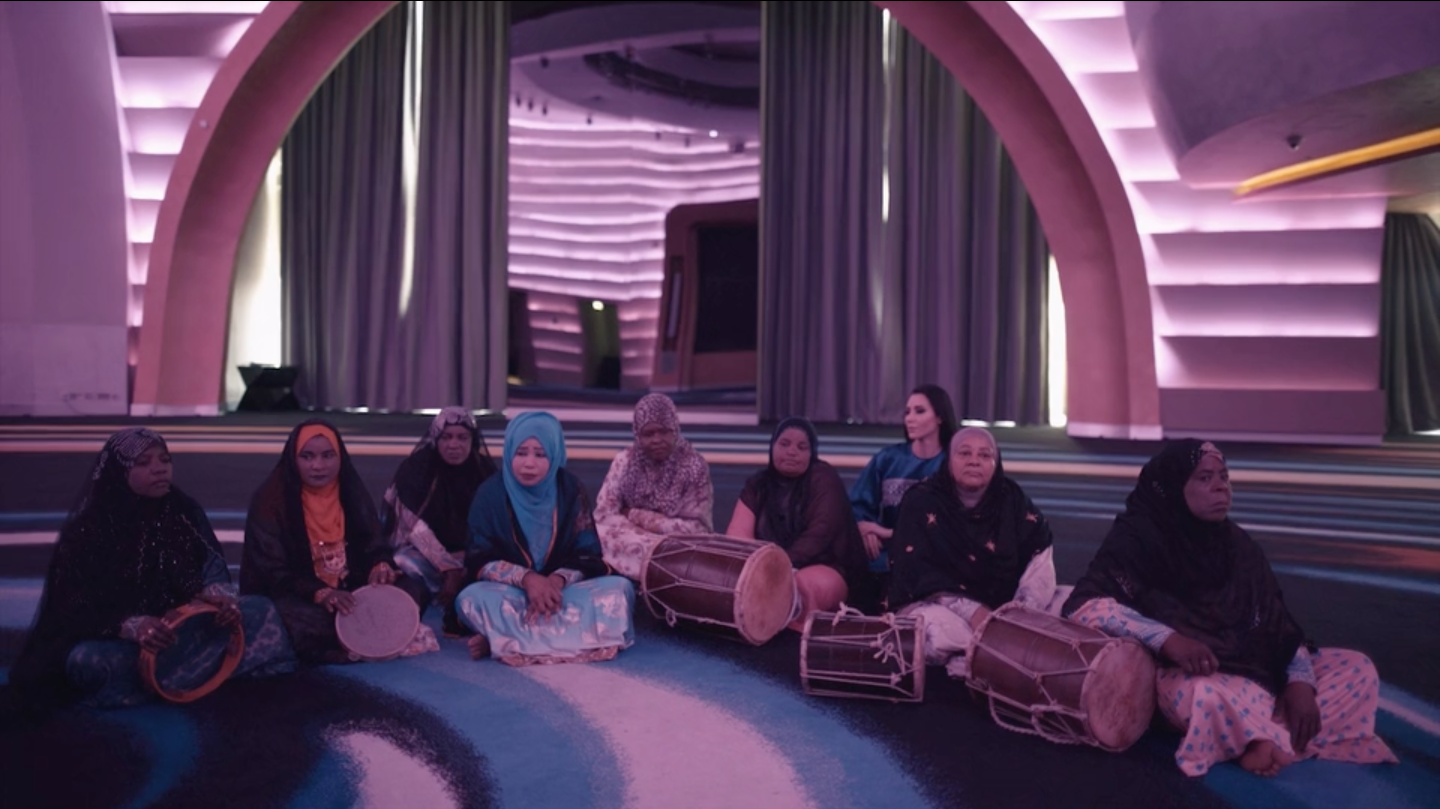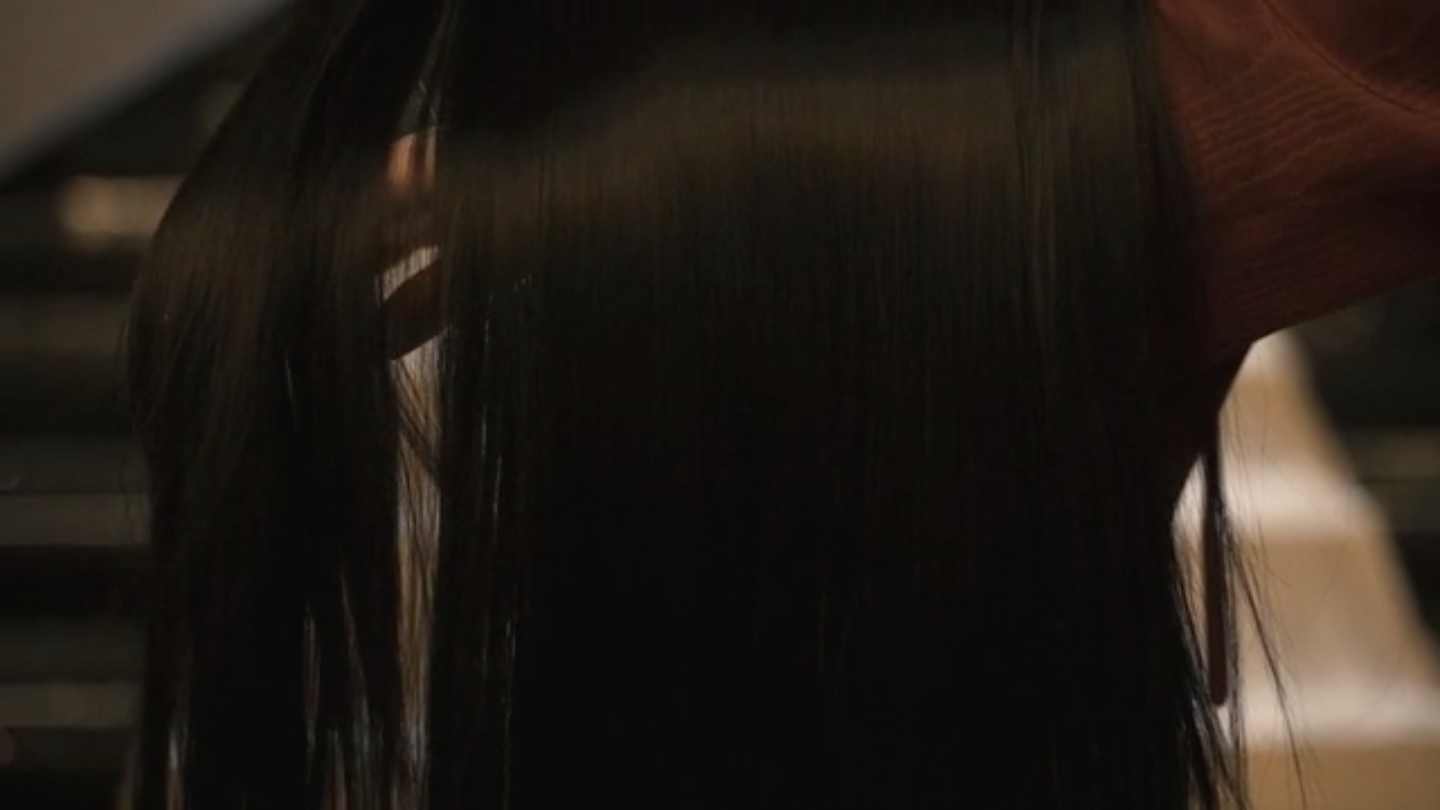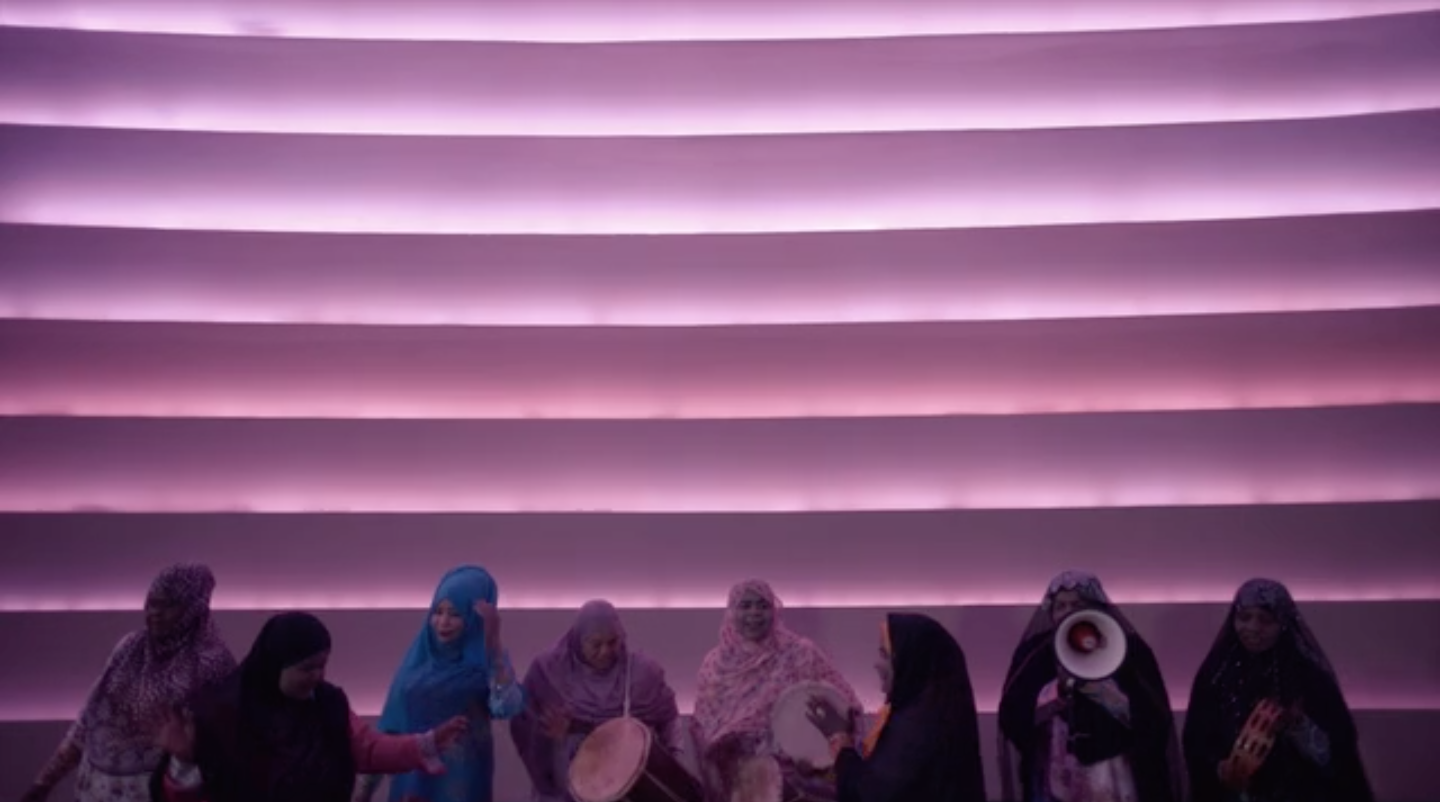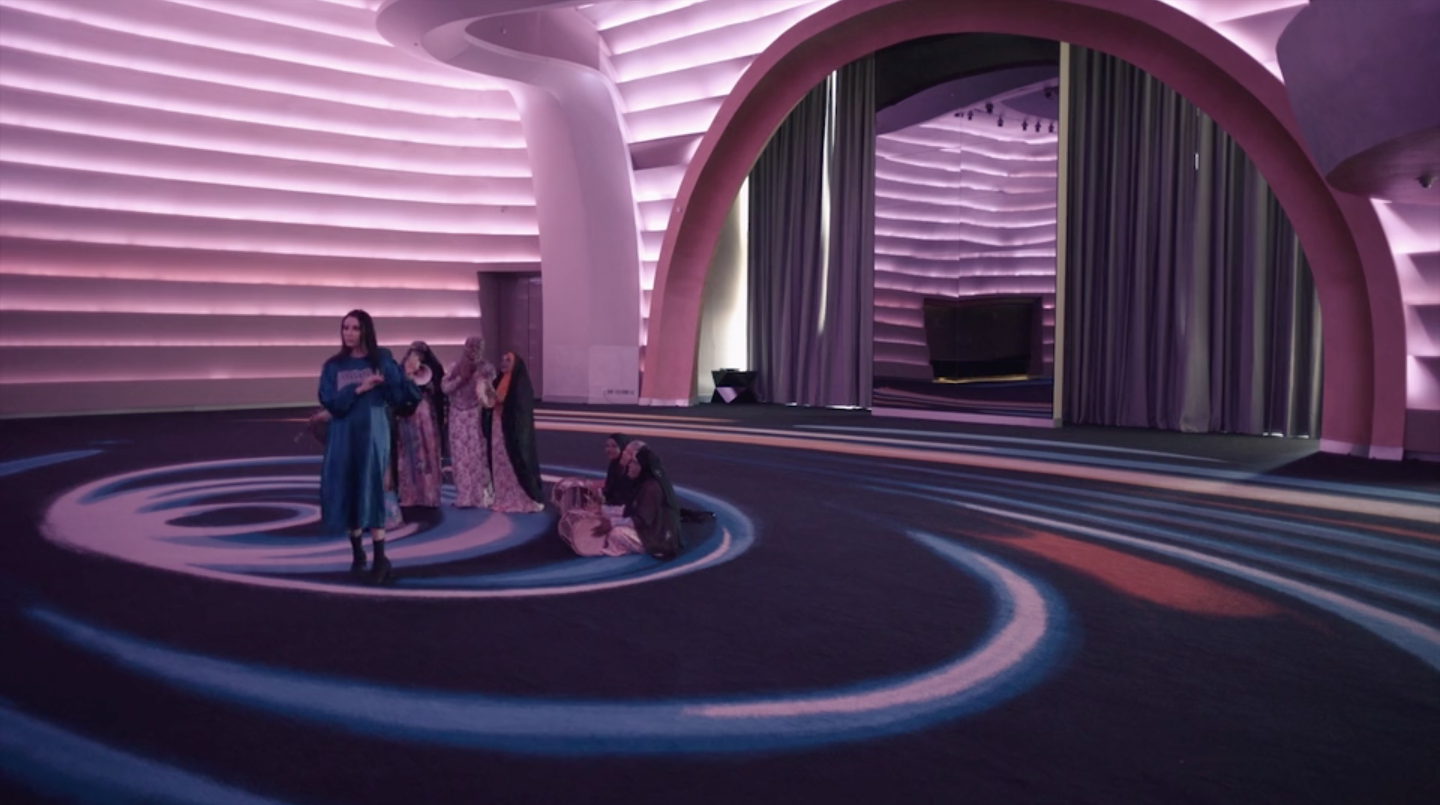‘I rise, I run. I even try dancing’ – these are the first words one hears after being greeted by the music from ‘Khaleeji’ (the ten piece band of folk singers) in the opening scene of ‘Embroidery For A Long Song‘. This short film is a neon-inspired meditation on female energy, and it creates a bridge between the modern and traditional by examining the histories of the Gulf region through music, fashion and poetry.
Filmmaker Amirah Tajdin has always been fascinated by the connection between fashion and film. With designer Faissal El-Malak‘s concept for ‘Embroidery For A Long Song’ she was finally able to explore this. A few months before Faissal asked Amirah to get on board with the film, she had created a fashion film for his Spring/Summer 18 collection. They had been friends for a while, but while working on the fashion film they discovered a new kind of creative synergy. When Faissal was approached by the W Hotels and Mixcloud team a few months later to curate the Dubai edition of their Future Rising event he automatically thought of making a second film with Amirah.

Faissal was given the broad brief to combine music with ideas about the future and a wonderland. These elements came together in his mind through nostalgic memories of the traditional music shows and concerts he used to watch on tv while growing up in the Gulf. “The sets of these shows were oddly futuristic; they created something very interesting visually where the tradition was respected and preserved within an ultra-modern context. It was sort of a wonderland where technology and an abundance of LED lights created a space to express one’s self fully. This was not a foreign concept to the way we live our daily life in a region that has seen exponential growth and has embraced very quickly modern and futuristic architecture as a norm, but that still hangs on very strongly to tradition, most notably in the way most people still wear traditional garments on a daily basis.”
With these memories and his desire to further his knowledge about women who play traditional music, Faissal began to ask around about this practice. He was also influenced by the words and pseudonyms used by millennials who revived the tradition of spoken word poetry through platforms such as Flickr and MySpace. These pseudonyms – ‘Eye of the Gazelle’, ‘Daughter of the falcon’ and ‘The one with the khol lined eyes’ – are interpreted visually through the animated illustrations that appear at particular moments in the film. “The expression of traditional music is in itself a collaboration between sung poems, the traditional garments, beats and dances coming together to create a feast for the senses,” Faissal explained. The connection between poetry, fashion and music is intimately displayed in how the film unfolds.
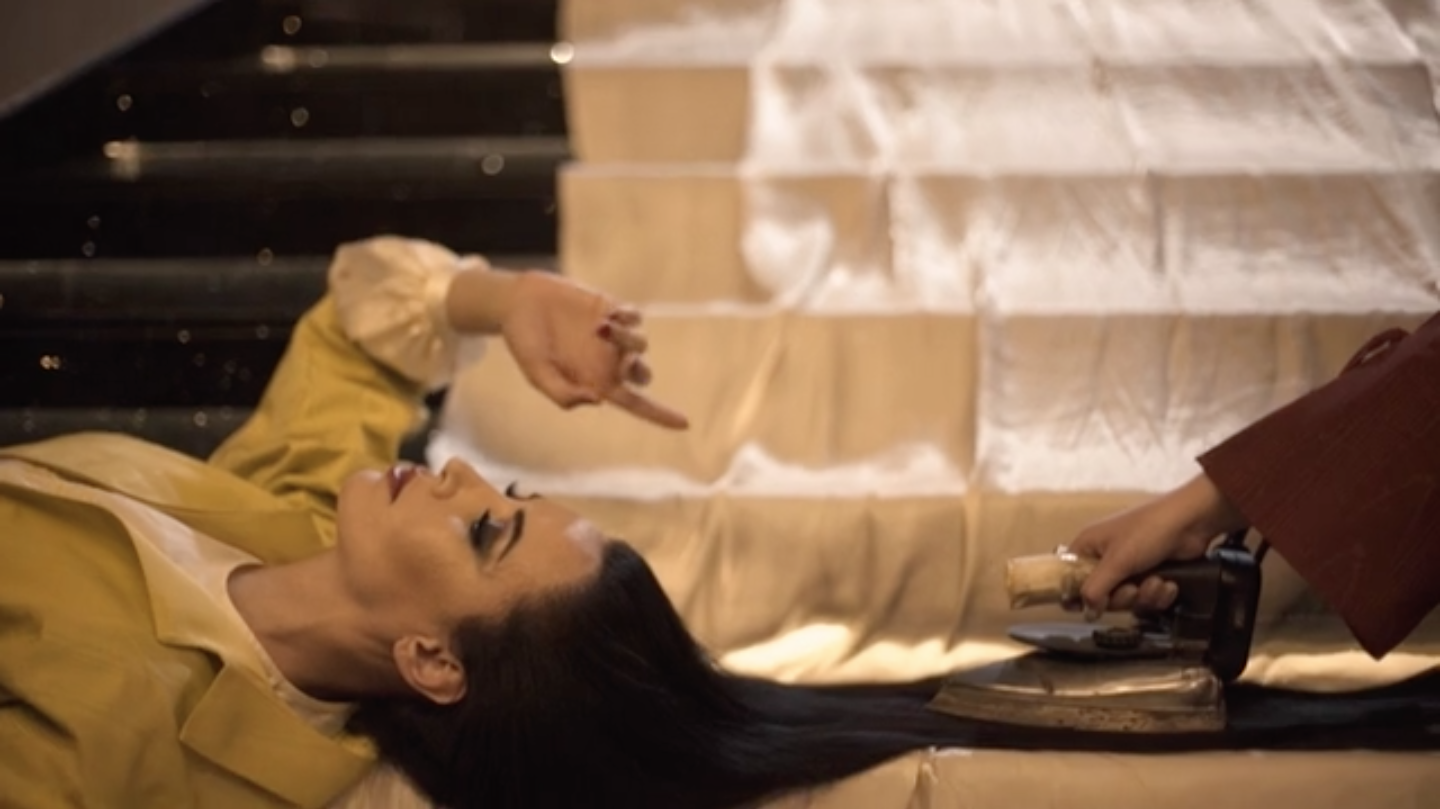
At the core of Faissal’s approach to fashion is his appreciation and celebration of Middle Eastern textiles and motifs, designing women’s ready-to-wear garments that offer combine the traditional and the modern. There is a parallel display of this in the film. A string of symbolic gestures echo this, such as the ironing and incensing of the main character’s hair and her dancing in the hall on her own. These traditional references are juxtaposed against the futuristic elements of the W Hotel hallways and neon lights. Trippy, distorted sonic encounters are merged with the instruments and chanting by Khaleeji. A poem is used as a device to narrate the film, inviting viewers into the mind of the main character.
This film is a loud celebration and a quiet reflection all at once. It offers itself as a compilation of memories presented in a way that excites sight and sound.
View the full film below.
